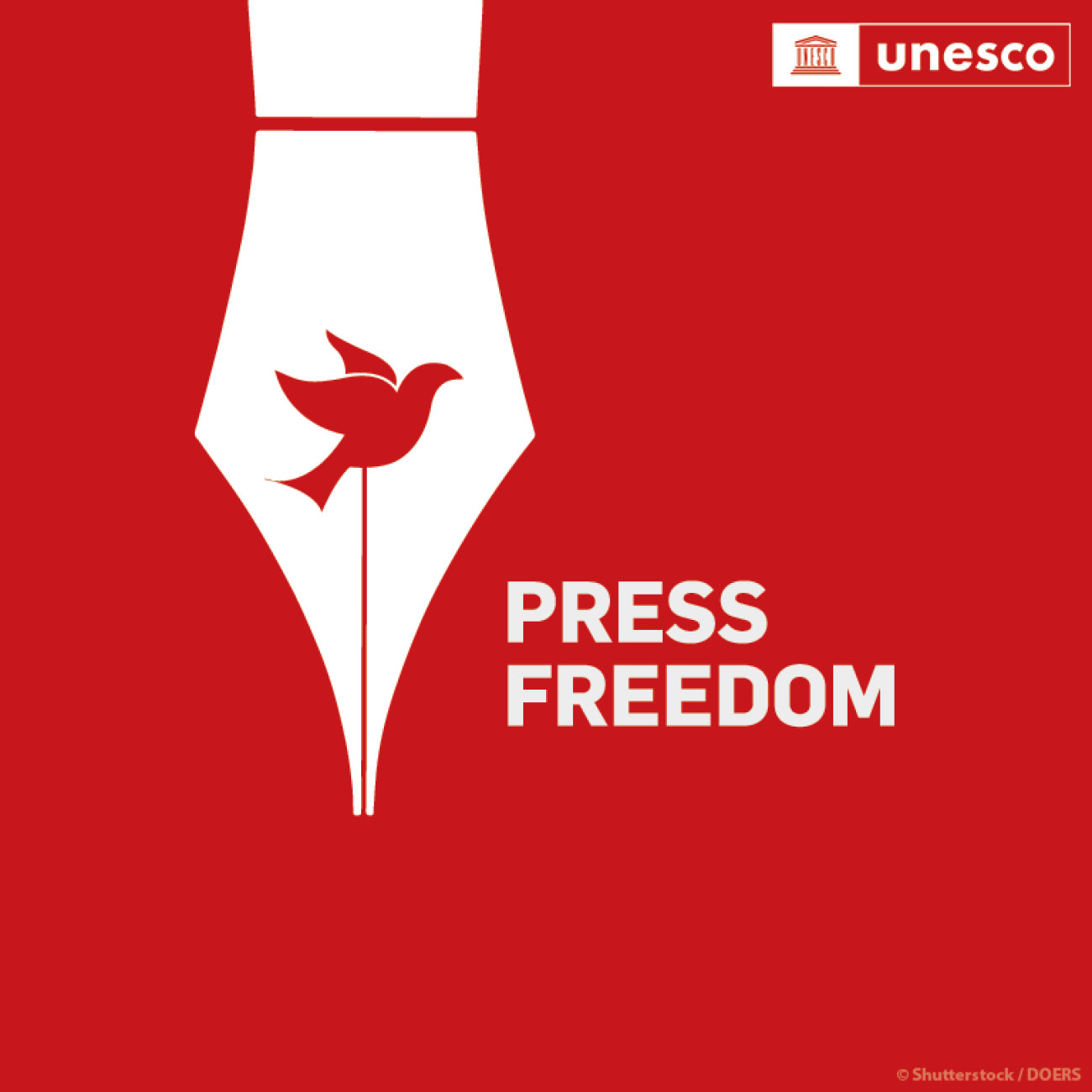UNITED NATIONS STATEMENT ON WORLD PRESS FREEDOM DAY 2025

Many of our local media houses struggle with resource limitations and are unable to invest in vital verification technologies.
Lilongwe, 3 May 2025 – Today, the United Nations in Malawi joins the world in commemorating World Press Freedom Day under the theme "Reporting in the Brave New World: The Impact of Artificial Intelligence on Press Freedom and the Media." This year’s observance comes at a pivotal moment for Malawi, as the nation prepares for harmonised elections in September amid compounding challenges of climate shocks, food insecurity, and economic headwinds.
In an era where artificial intelligence is reshaping how information is created, shared, and consumed, we stand at a defining crossroads. As the United Nations Secretary-General reminds us, “Freedom for people depends on freedom of the press. Free and independent journalism is an essential public good.” Yet across the world, and here in Malawi, this freedom faces unprecedented threats, magnified by the unchecked use of artificial intelligence.
Malawi’s media landscape reflects both the promise and the peril of this new frontier. On the one hand, AI tools are enabling young tech innovators to develop chatbots that share agricultural advice in Chichewa and Tumbuka, extending vital agriculturaral knowledge and extension services in easily understood format to rural farmers. Community radio stations such as Nkhotakota FM are using digital platforms to broadcast early warning messagess about impending cyclones thus saving lives. On the other, we see the darker side: AI-generated deepfakes spreading disinformation about drought responses, manipulated narratives distorting electoral messages, and female journalists facing intensified online harassment.
Today, over 60 percent of Malawians access news via social media platforms, where synthetic content often spreads unchecked. Many of our local media houses struggle with resource limitations and are unable to invest in vital verification technologies. As Malawi’s elections approach in September, the role of a free, independent, and responsible media will be more critical than ever in safeguarding democracy, ensuring inclusive peaceful electoral participation, and upholding the right to accurate information.
At a time when Malawi faces mounting food insecurity and social pressures are increasing, credible journalism serves as a lifeline for communities. Last season, when false claims about “disappearing relief maize” circulated online, it was diligent investigative reporters that uncovered the truth and helped clear misconceptions. As floods displaced thousands of villagers in the Lower Shire Valley, community journalists became frontline messengers, providing timely updates that facilitated humanitarian response. Today, young Malawians, through podcast platforms and citizen journalism, continue to demand accountability and inspire civic engagement.
However, these efforts come at a cost. The 2024 Media Sustainability Index revealed that 42 percent of Malawian journalists self-censor due to political pressure, and only 15 percent of media houses have the tools necessary to monitor and combat AI-driven disinformation. Women remain underrepresented, contributing only 28 percent of bylines in election coverage, and often face threats that silence their voices.
The United Nations in Malawi recognises four urgent priorities for protecting press freedom in Malawi's digital age:
- building technical capacity to help media professionals navigate AI's ethical challenges while harnessing its potential;
- ensuring equitable access to information technologies across geographic and demographic divides; and
- maintaining legal protections for journalists as they fulfil their essential democratic role.
- supporting media consumers to critically analyse media messages so they are able to identify possible disinformation.
The UN in Malawi is demonstrating its commitment to promoting and protecting press freedom through concrete actions such as the UNDP-supported IVerify initiative, which provides a service to journalists and citizens to verify the credibility of media messages and stories – including those shared online through social media – this includes training journalists in AI verification techniques and UNESCO establishing Malawi's first regional digital verification hubs by July, while UN Women is implementing new protection mechanisms for female reporters facing online violence. These efforts complement our broader work in bridging information gaps in climate-vulnerable communities.
On this World Press Freedom Day, let us celebrate the courage of Malawian journalists who persist—often against great odds—to keep the nation informed. Let us protect their rights, amplify their voices, and strengthen their ability to hold those in authority to account. For, without a free and independent press, Malawi’s journey towards peace, equality, and sustainable development will remain incomplete.
Today, we recommit to ensuring that journalism thrives as the backbone of democracy, human rights, and justice in Malawi, now and for generations to come.







